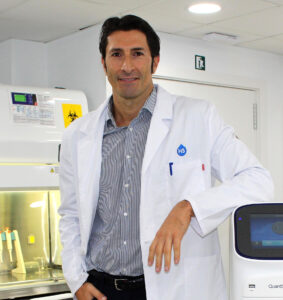Opinion. Reflection of the month.
By José María Berrio
“E.coli case at McDonald’s, analysis of a food scare”.
There is a lot of talk this week about the E.coli outbreak that has put McDonald’s in check and that has left, until October 28, more than 70 infected by this bacterium, two of them with renal complications and one deceased, an elderly man from Colorado.
The news has spread like wildfire and has caused such a stir in the sector that the company has suffered a significant drop in the stock market. However, is the food scare really that big, considering the number of Mcdonadl’s establishments and the exorbitant number of hamburgers they serve every day? Let’s look at the data.
Recently, I read an article in the New York Post revealing that the fast food giant sells 6.48 million burgers in a single day, which is equivalent to 2.36 billion burgers served in a year worldwide. With this data on the table, can food industry experts say that the company’s HACCP control systems are working?
It is well known that Mcdonadl’s, like other similar companies, has rigorous and strict safety protocols to guarantee the safety of its food and the safety of consumers.
The outbreak of E.coli this October, as we said, has so far affected more than 70 consumers and one of them has died. It should be remembered that E.coli can cause serious complications in people with previous pathologies, the elderly, the immunocompromised, etc. In this case, the deceased is an elderly man from Colorado whose previous state of health has not been disclosed.
The latest information published does not point to the meat, but to the sliced onion provided by Taylor Farms in the 900 Mcdonald’s establishments in the Midwest. Now the company, and other fast food chains, have dispensed with this ingredient and have even cancelled contracts with this supplier (article: Onionicide). (Another current issue is the treatment of ground beef in undercooked Smash Burger style hamburgers, which undoubtedly gives rise to another article).
In a context of imminent presidential elections in the USA, with social networks and the media spreading the news quickly, creating “trending topics” based on headlines, sometimes mediatic and sensationalist, my reflection is along the path of reasonableness.
Unfortunately, food alerts are published daily due to the presence of pathogenic bacteria, such as Listeria or Salmonella, in batches of smoked salmon, larded meat, precooked products, etc. (AESAN).
In the hotel or catering sector, we also have examples of cases of food poisoning, such as last July, in Murcia, a wedding with 50 guests with symptoms of diarrhea and vomiting (News).
Quality managers of food industries know well that they must have a robust system of prevention, control and verification to ensure the safety and innocuousness of food. However, sometimes this system can fail and early detection of the problem, before offering the product to the consumer, is key to prevent possible poisoning.
And as a final thought, I throw this question into the air: Analyzing the data , do you think the HACCP system, in this case Mcdonadl’s, works over the years?
José María Berrio
Biology & Biochemistry MSc
CEO HS Consulting Group

 English
English
 Português
Português  Português
Português 